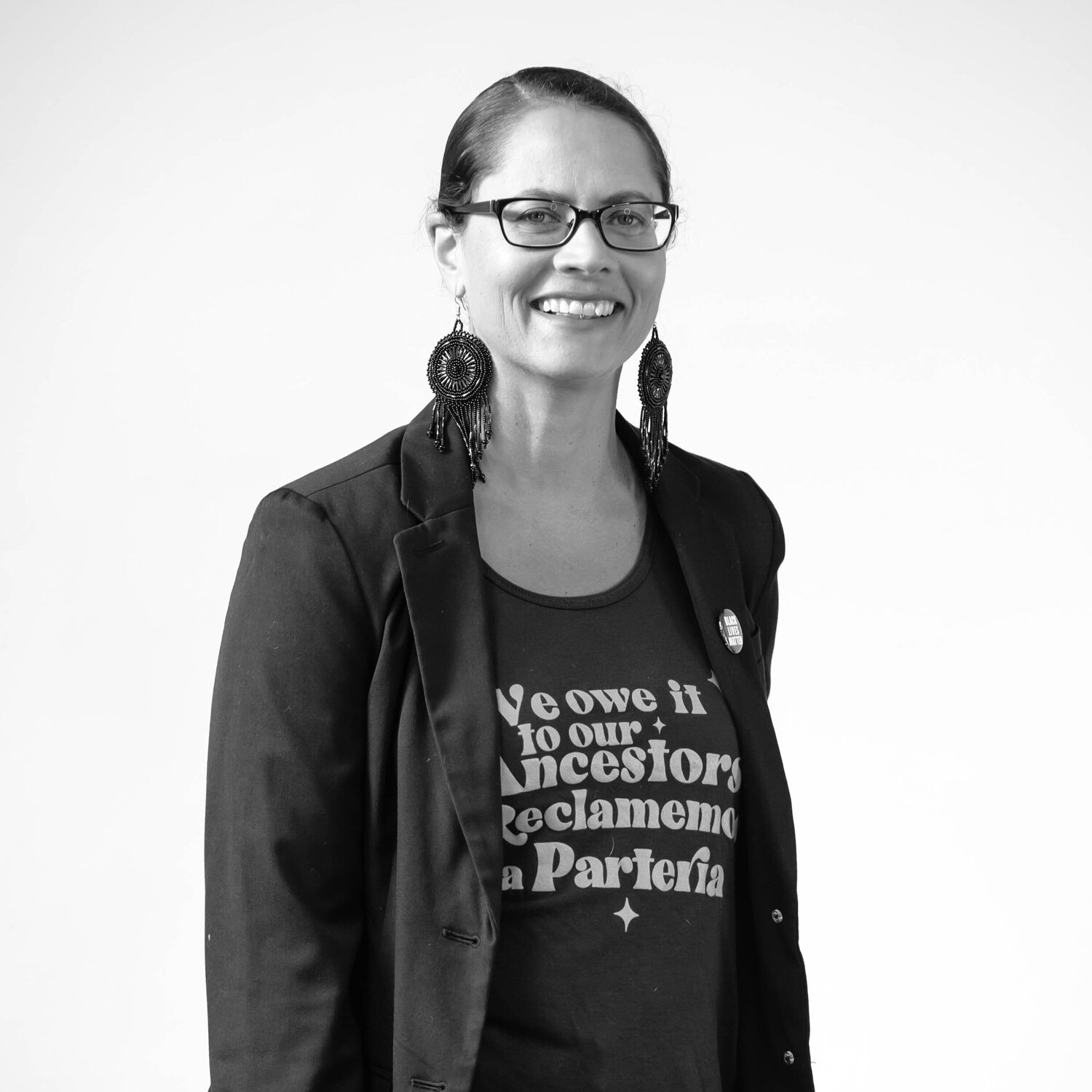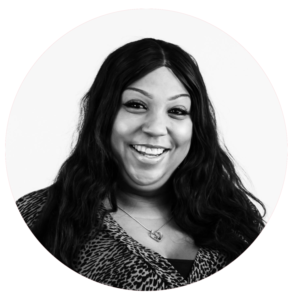
Midwife, Partera
– Ana
I came to midwifery from a community organizing place.
I was working in Washington, DC doing advocacy work and I realized I really liked working with my hands and Spanish speakers, so I started volunteering in different capacities to try out different jobs. I literally opened a phone book and found a clinic in DC that needed Spanish interpreters.
The night that I got assigned to work was the night that they did a prenatal clinic. Thinking about that is when I think about my ancestors. I think about how I’ve been guided in this. It hasn’t been accidental. The clinic had a lot of Central American refugees who were coming to the city and really needed help. Midwives were running the clinic and I was like, “These ladies are awesome.” I just fell in love with midwifery.
Finding Reproductive Justice (RJ) as a theory in my midwifery career was so important. It’s not just about what happens in the exam room or what happens in the birth suite, but also, what are we doing to actually create an environment for these families to thrive?
It’s also not just about preventing pregnancy or providing abortion. It’s also about all of the people who want to raise their kids, be free from state and police violence, and not live in poverty. I am grateful to the Black women who came up with RJ and continue to lead in the RJ space today.
There is a direct link to white supremacy in the origins of obstetric care in the United States. Unfortunately, our educational system for healthcare providers is not set up to teach us that. My profession is 90% or more white and I had learned all of this really harmful stuff in nursing and midwifery school. So, I began unlearning.
I remember re-emerging, frankly, back into that community space, listening and embracing the idea of trusting people to know what’s going on with their bodies. In some ways, if you haven’t realized that there’s something wrong with the way you were educated as a healthcare provider at this point in the game, it’s kind of willful ignorance.
I find it liberating to admit that I don’t actually have the answers. It’s like, I know some things about birth and about people who maybe look and are raised like me, but I don’t know everything by any stretch. As a midwife, I could say, “Okay, this is what I know about prenatal care. There are certain things that we can find out and that we can treat.” I could say, “I have tools to monitor for those things and I think it’s important for these reasons.”
But if you told me at the beginning, “You know what? I’m not that worried about it.” It’s like, “Okay, that’s not important to you. That’s okay. I need you to know that this was there as an option.” I’m not going to punish you for not doing it. It’s best to have a relationship with someone where you trust them to take care of themselves in the way that they know best. All you can do is share the information that you think is helpful for them to make those decisions.
The only way I can do my work with integrity is by being in relationship with community members like Julie Harris. I need to constantly interrogate my power and privilege as a healthcare provider and academic, making sure the voices of community members like Julie are at the center of my work. It was such a pleasure to interview Julie and have her interview me and be reminded of this commitment.
